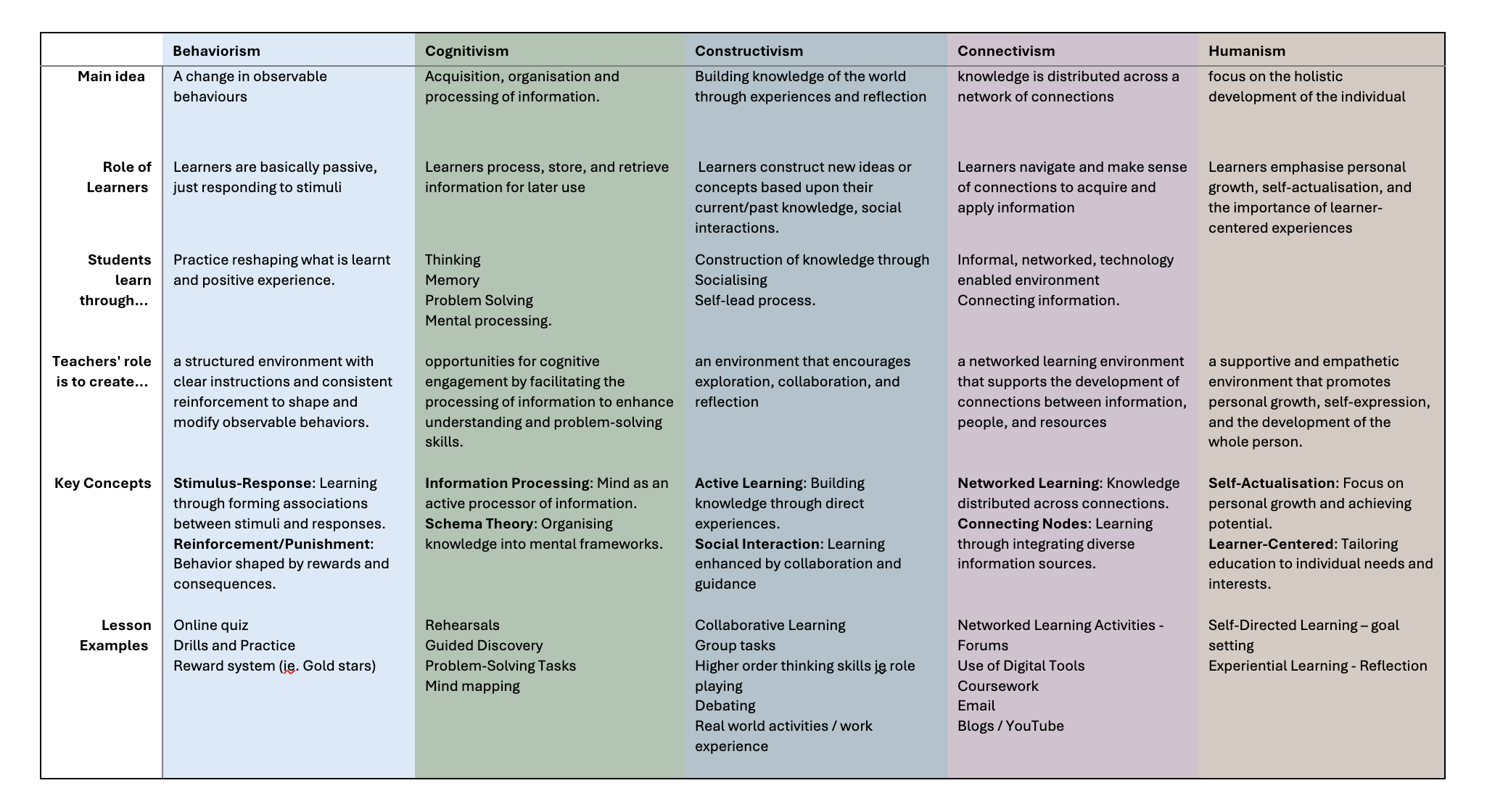1 | Learning About Learning
What I’ve Uncovered About the Principles of Learning and Teaching.
Subject Learning Outcome: “Define, analyse and interpret a range of contemporary educational theories and principles of learning and teaching”
I love learning new things, and this year it has been a joy to learn about learning. Until this year, I have never really considered the theory that underpins what I teach, it’s been intuitive to me. Looking back on my past experiences, particularly my work as a Snowsports instructor, it has really informed the way I teach. At I high level, I see learning as an active process that is adaptive, builds on prior knowledge and requires cognitive engagement (Berkley University of California, 2019). Learning about theory that underpins the acquiring of knowledge has really made me passionate about improving the architecture and design industry through teaching our clients about the complex process and of what an architect does! The learning theory of Behaviourism coined by B.F. Skinner, known for its punishment and reward system and being a teacher centric learning model, doesn’t fully resonate with me in 21st century learning. When I am teaching technical skills such as the National Construction Code, elements of behaviourism are appropriate, but it's not enough to encourage the key critical problem solving and analytical skills needed in such a fast-paced industry (Soykurt, 2021).
Constructivism and the works of Jon Dewey, provide another layer of learning theory that allows a more active learning environment where students can construct their own meaning (Kabilan, 2022) – a critical skill to have in industry where every project you work on is a unique design. The goal here is to build on prior learning and to develop higher order thinking skills situated around authentic situations, that are collaborative and foster creative solutions.
These models of learning aren’t unique to the classroom as a facilitator and are also carried into professional practice. It's my opinion that no single model of learning will produce resilient students and future industry professionals. An adaptive approach is needed.
Have I been successful in achieving this subject learning outcomes?
I have just scratched the surface of my journey to understanding and implementing learning theory in practice. Adult learning, sociology and psychology are just a few of the areas in which transformational learning is understood (Brendel, 2016). Learning is a complex topic, and to understand how I learn and share knowledge, is essentially understanding what it is to be part of the human experience. There is no one learning model fits all, as a facilitator and future industry leader, it’s clear that my approach to work and life will have to adapt as the world around us does.
Fig. 1 (Keesee, 2012) and compiled by ChatGPT.
Further Reading and watching:
Berkeley University of California Centre for Teaching and Learning, (2019). What is Learning? http://teaching.berkeley.edu/resources/learn/what-learning
Brendel, W. (2016). Transformative Learning Theory (Part 1) [Video]. Youtube. https://www.youtube.com/watch?v=EYWb_GhHMVw
Kabilan, M. K., & Khan, M. S. (2022). Academic reading and writing strategies in the digital age: A review of research. Journal of Educational Technology, 13(2), 45-59. https://eric.ed.gov/?id=EJ1304603
Keesee, G., (2012). Learning Theories. http://teachinglearningresources.pbworks.com/w/page/19919565/Learning%20Theories
Soykurt, M. (2021). REFLECTIONS OF CREATIVITY IN THE 21ST CENTURY CLASSROOM. Near East University Online Journal of Education, 4(1), 100-108. https://dergipark.org.tr/en/download/article-file/1576562

